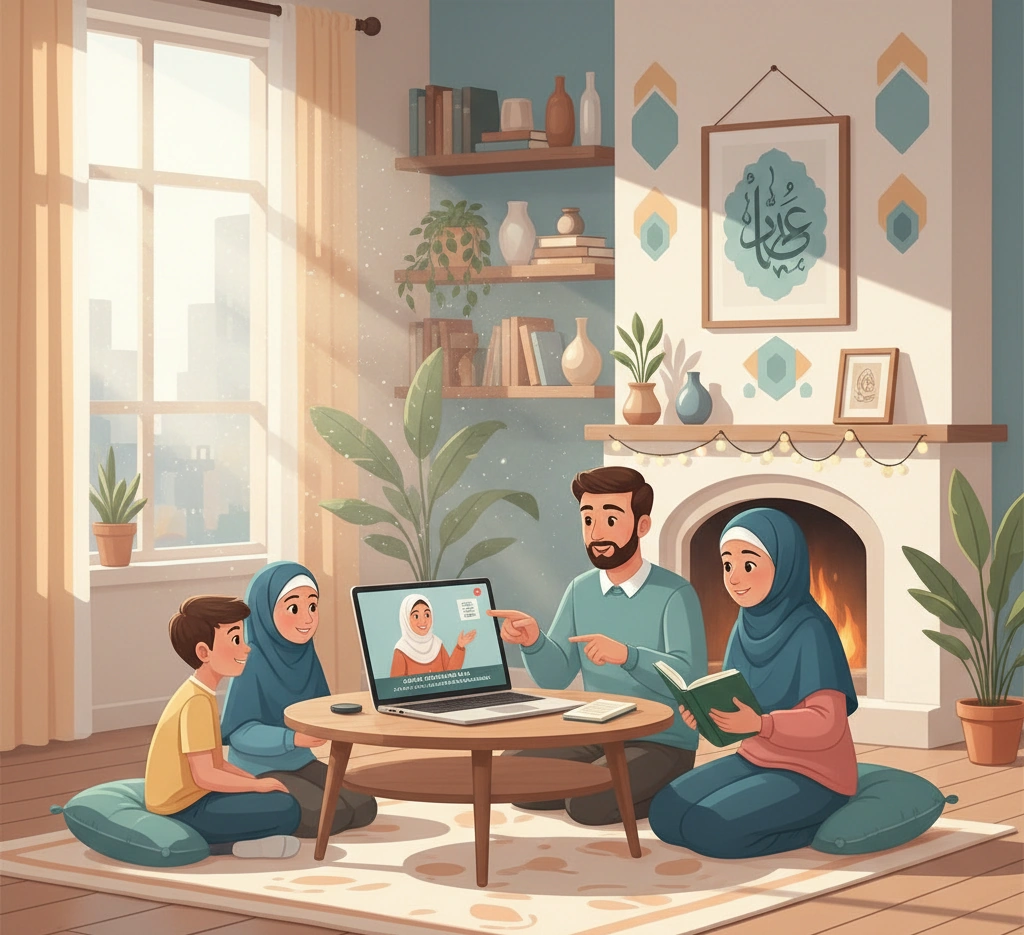Introduction
Today, you do not need to look far to find how the entire educational system has become digital and Quran studying is not an exception. Families that previously relied on local madrasas or at home tutors are now resorting to the services of online platforms.
In Pakistan, in the United Kingdom, in Australia, in the United States, and elsewhere around, the number of Muslims opting to study the Quran on the internet is on the increase since it suits in the modern world. It is flexible, safe and has the same spiritual value. We would want to understand what is changing and how this is transforming the future of Islamic education.
Why More People Are Learning the Quran Online

It Fits Every Schedule
Life is busier than ever. Parents work, take children to school and, adults are unable to find time to learn on their own. Consistency is facilitated with online Quran classes because it can be used by a child studying Noorani Qaida after school, or a working person studying Tajweed late in the evening.
You can study at your own convenience, choose your own time to have classes and you do not have to travel. That is a major factor that has contributed to the rapid growth of the online learning of the Quran.
Access to Qualified Teachers
Another major advantage is the quality of teaching available online. The students are able to relate with qualified Quran teachers globally with most of them being trained in Tajweed, Hifz, and Islamic studies. Parents have the opportunity to check their backgrounds, certifications and even observe lessons.
This is a blessing in the families of the Western countries where access to local teachers may be scarce.
Affordable and Transparent
Traditional classes can be costly when you factor in commuting or private tutor fees. Online academies usually charge less and offer flexible monthly plans. Some even provide trial lessons so families can find the right teacher before committing. It’s education made accessible for everyone.
How Technology Is Transforming Quran Education
Technology has become a real ally in spreading Quran learning. Video conferencing tools like Zoom and Skype allow live lessons where students can see and interact with their teachers.
Some platforms go a step further – offering dashboards where parents can monitor progress or teachers can share notes. A few even use AI-based tools that analyze pronunciation and help improve recitation accuracy.
But technology hasn’t replaced teachers. It’s simply made their work easier and more effective. The connection between teacher and student remains the heart of every Quran class.
Benefits for Families and Students
One-on-One Attention
In a classroom, it’s easy to get overlooked. But in online Quran learning, every student gets full attention. Teachers adjust the pace, repeat lessons when needed, and personalize their approach. Kids, in particular, tend to stay more engaged when learning this way.
Learning in a Safe Space
Parents appreciate that lessons take place at home. There’s comfort in knowing your child is learning under your supervision and in a familiar environment.
A Structured Learning Path
Most reputable online Quran academies follow proper curriculums – starting from Qaida, moving to Tajweed, and later memorization. You can see exactly what your child is learning and how they’re progressing week by week.
A Global Classroom for the Quran
One beautiful thing about online Quran education is how it connects people across continents. A student in London might have a teacher in Islamabad. A family in Sydney might choose an academy in Lahore.
This global exchange not only improves access to authentic knowledge but also strengthens the sense of unity among Muslims worldwide.
It has also created new career opportunities for teachers — especially in countries like Pakistan and Egypt, where many qualified scholars now teach students abroad full-time.
Common Challenges (and Smart Ways to Overcome Them)
Even with all these positives, online learning isn’t perfect.
Some families face internet issues or inconsistent routines. But small adjustments make a big difference – recording lessons, keeping class times fixed, and involving parents can solve most problems.
Quality control can also be tricky, so it’s important to choose verified academies that list teacher credentials and reviews. A few minutes of research saves you from poor experiences later.
The Future of Online Quran Learning
The next chapter in digital Quran education looks even more promising.
We’re already seeing tools that help with pronunciation correction, student tracking, and interactive Tajweed practice. AR or VR-based virtual classrooms could be more interactive in the near future – you can sit in your teacher’s company in real life.

Yet there is one thing which never will change, that is, the Quran will always be taught heart to heart, teacher to student. It will be supported by technology and not replaced by it.
Conclusion
The Internet based Quran education has made millions of Muslims worldwide open. It has enabled families in the US, UK, Australia, and Pakistan to find and hire qualified teachers, study on their own time and have the Quran at the heart of their lives all at the comfort of their lives.
It’s a simple idea powered by faith and technology: making the Quran easier to learn, understand, and live by, no matter where you are.


One Response